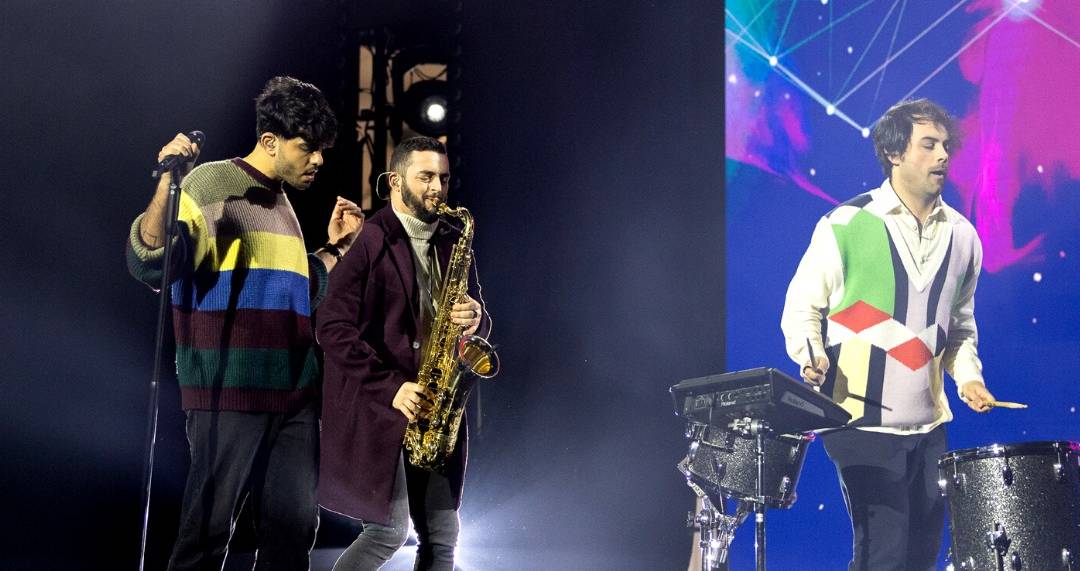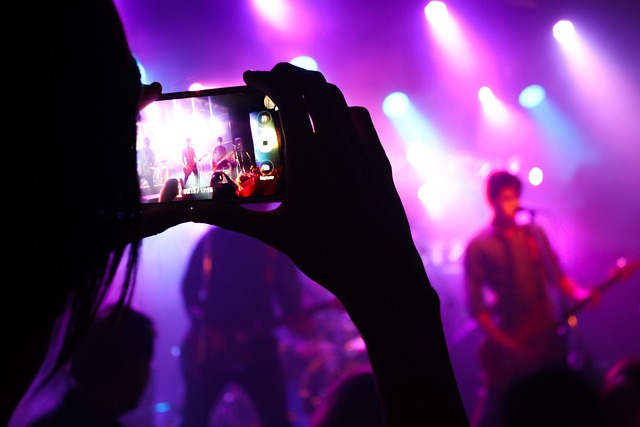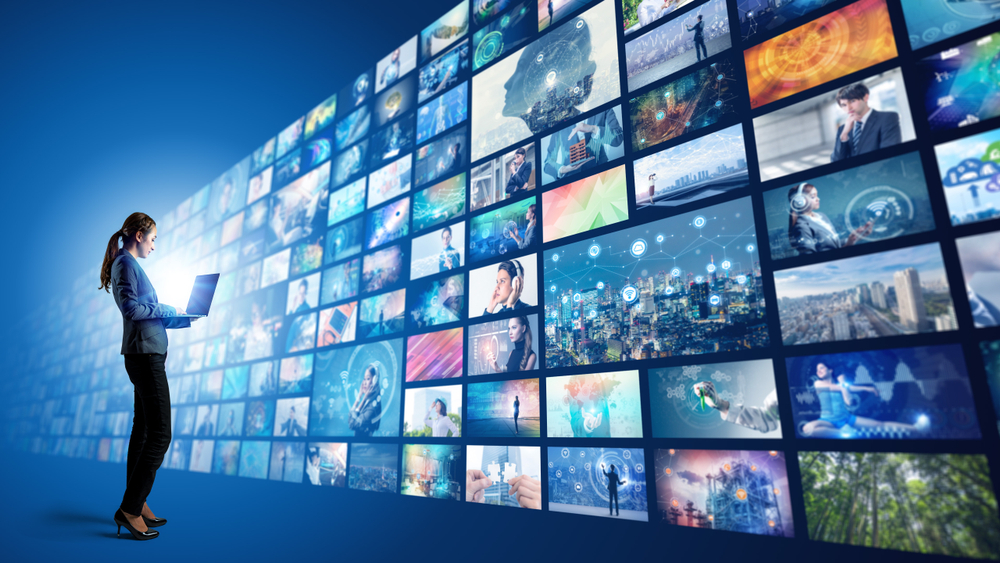
Get ready to laugh out loud as we take a deep dive into the undeniable impact of comedy on the entertainment industry.
From ancient jesters to modern stand-up comedians, humor has always had a way of connecting with audiences like no other.
In this article, we'll explore how comedy reflects society and cultural trends, breaks down barriers, challenges norms, and ultimately shapes pop culture.
So grab your popcorn and get ready for some serious laughs!
Key Takeaways
- Comedy has always been a popular form of entertainment, bringing joy and happiness to people's lives.
- Comedy serves as a platform for social commentary, challenging societal norms and exposing hypocrisy.
- Stand-up comedy influences cultural dialogue, shaping perspectives and challenging traditional forms of entertainment.
- Laughter has a profound impact on mental health, providing relief from stress and anxiety, and improving overall well-being.
The Evolution of Comedy Throughout History
You'll be amazed at how comedy has evolved throughout history. From ancient Greek theater to modern stand-up specials, there have been evolutionary changes that have shaped the comedic landscape and had a profound impact on the entertainment industry.
In ancient times, comedy was often used as a means of social commentary. It allowed people to laugh at societal norms and question authority.
Fast forward to the Middle Ages, where court jesters entertained royalty with their wit and humor. Comedy took on a more slapstick form during this period, providing much-needed relief from the hardships of everyday life.
As time went on, comedy continued to adapt and change. The invention of film brought about silent comedies like Charlie Chaplin's iconic tramp character, who used physical humor to captivate audiences. Then came the era of sitcoms, which gave us beloved characters like Lucy Ricardo and Archie Bunker.
Today, we see comedy taking on new forms through online platforms and streaming services. Comedians are using social media to reach larger audiences than ever before, making us laugh with their relatable observations and hilarious sketches.

The evolution of comedy has not only entertained us but also challenged societal norms and pushed boundaries in the entertainment industry. It continues to bring joy and laughter into our lives while reflecting the ever-changing world we live in.
The Power of Humor in Connecting with Audiences
When connecting with audiences, it's important to use humor as a powerful tool. Laughter has an incredible ability to bring people together and create a sense of connection. Comedy has been a time-honored coping mechanism, allowing individuals to find relief in the face of adversity. It's no wonder that comedy holds such a prominent place in the entertainment industry.
The healing power of laughter cannot be underestimated. In times of stress or sadness, a good joke or funny story can provide much-needed respite. Comedy allows us to momentarily forget our troubles and find joy in the absurdity of life.
To illustrate this point further, let's take a look at the following table:
| Benefits of Humor |
Examples |
| Stress relief |
Watching stand-up comedy after a long day |
| Bonding |
Sharing inside jokes with friends |
| Perspective |
Finding humor in difficult situations |
As you can see, humor serves as both an escape and an opportunity for connection. So next time you're looking to connect with your audience, remember the power of laughter and embrace the comedic side of life!
Comedy as a Reflection of Society and Cultural Trends
If you're looking for a way to understand society and cultural trends, take a closer look at how humor reflects these aspects.
Comedy has always been a mirror held up to our collective faces, exposing the absurdities and contradictions of the world we live in. It's no surprise that comedy plays such an important role in shaping our entertainment industry.
But it goes beyond just making us laugh - comedy has a profound impact on mental health. Laughter is medicine for the soul, providing relief from stress and anxiety.
And let's not forget comedy's role in political satire. Satirical shows like 'Saturday Night Live' or 'The Daily Show' use humor to critique those in power, holding them accountable for their actions.

So next time you find yourself cracking up at a hilarious stand-up routine or laughing along with a sitcom, remember that comedy is more than just entertainment - it's an essential reflection of who we are as a society and what we value.
The Rise of Stand-Up Comedy and its Influence on Pop Culture
Get ready to see how stand-up comedy has taken over pop culture and influenced our society in ways that are impossible to ignore.
Stand-up comedians have become the rock stars of the entertainment industry, using their wit and charm to captivate audiences everywhere.
What makes stand-up comedy so powerful is its ability to provide a therapeutic release through laughter. In a world filled with stress and chaos, comedians like Kevin Hart and Amy Schumer give us an escape from reality, allowing us to momentarily forget about our troubles and just laugh out loud.
But it's not all fun and games - stand-up comedy also serves as a platform for social commentary. Comedians use satire to tackle sensitive topics such as politics, race, gender, and more. Through clever wordplay and sharp observations, they challenge societal norms while making us laugh at the absurdities of everyday life. This unique blend of humor and critique has made stand-up comedy an influential force in shaping cultural dialogue.
So next time you need a good laugh or want to engage in some thought-provoking conversations, turn on your favorite stand-up special. You'll not only be entertained but also gain new perspectives on the world around you.
Comedy truly has the power to change minds, break down barriers, and unite people through laughter. Embrace the freedom that comes with letting loose and laughing out loud!
Comedy's Role in Breaking Down Barriers and Challenging Norms
Embrace the transformative power of stand-up comedy as it challenges societal norms and breaks down barriers, giving you a fresh perspective on the world.
Comedy has long been a vehicle for political satire, pushing boundaries and questioning those in power. From Jonathan Swift's biting commentary to late-night talk show hosts' scathing monologues, comedians have used humor to expose hypocrisy and challenge political norms.

Moreover, comedy plays a vital role in addressing and breaking down gender biases. Through clever observations and hilarious anecdotes, comedians shine a light on the absurdity of gender stereotypes that persist in our society. They challenge traditional notions of masculinity and femininity with sharp wit and undeniable charm.
By laughing at these conventions, we can begin to dismantle them, paving the way for a more inclusive and equal future.
So sit back, relax, and let comedy be your guide to freedom of thought.
Frequently Asked Questions
How has comedy evolved over time and what are some of the key milestones in its development?
Comedy has come a long way, evolving from slapstick to satire. Key milestones include the rise of stand-up in the 1960s and the groundbreaking work of comedians like Richard Pryor and George Carlin. It's been one hilarious journey!
What are some examples of how comedy has been used to connect with audiences and create a sense of unity and shared experiences?
Comedy has an amazing way of bringing people together. It creates a sense of unity and shared experiences, tackling sensitive topics in a way that fosters community. It's like a secret code that unlocks freedom and laughter.
In what ways does comedy reflect the social and cultural trends of a particular time period?
Comedy reflects societal trends by challenging norms and highlighting absurdities. It influences how we perceive social issues and shapes cultural conversations. Through satire and political commentary, comedy provides a platform to question authority and provoke thought.
How has stand-up comedy risen to prominence and what impact has it had on popular culture?
Stand-up comedy has skyrocketed to fame through its evolution, becoming a cultural force that influences popular culture. Its raw honesty and ability to challenge social norms have allowed it to shape and redefine our collective sense of humor.
Can you give some examples of how comedy has been used to challenge societal norms and break down barriers, and what has been the outcome of these efforts?
Comedy has long served as a weapon against societal norms. It's used to challenge political systems and advocate for change. Moreover, it breaks down gender stereotypes, promoting inclusivity and empowering individuals to question the status quo.
 SportsHollywoodLifestyleFashionHome & GardenTrendsPrivacy PolicyTerms And Conditions
SportsHollywoodLifestyleFashionHome & GardenTrendsPrivacy PolicyTerms And Conditions
